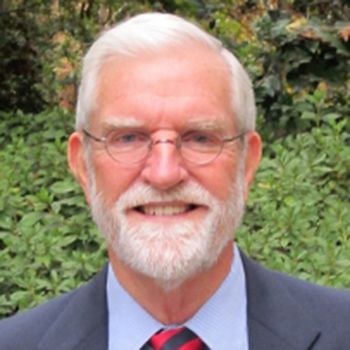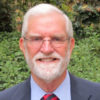Back to series



Aiden Wilson Tozer (1897 - 1963)
Click here to open a Print Friendly PDF
Aiden Wilson Tozer never sought to be noticed. Nevertheless, he was such a uniquely magnetic character that he unwittingly drew attention to himself. A man of slender build, angular face, and penetrating eyes, A.W. Tozer sported a modest moustache and a pair of wire-rimmed glasses that were nondescript enough to be relatively fashionable in any era. His suits and ties were as conservative as his glasses, but his noticeably large hands, long feet, duck-like walking gait and tangy voice set him apart in a crowd. In brief, he looked almost comically eccentric rather than distinguished, and unless people knew him, they would never have imagined that he
was one of the most admired evangelical spokesmen in the twentieth century.
By the time of his death on May 12, 1963, Tozer had written nine books—all of which were selling well. Two of his volumes, The Pursuit of God (1948) and The Knowledge of the Holy (1961), were already on their way to becoming Christian devotional classics that are read by more people now than during his lifetime. In fact, since his death, Tozer’s articles and sermons have been edited and published into more than forty books.
But A.W. Tozer was more than the author of bestselling books. He employed every medium of communication except television to communicate biblical truth and his powerful challenges to the twentieth century church. This widely read, self-educated student of history, philosophy, literature, and the Holy Scriptures wrote scores of pamphlets and well over a hundred periodical articles for various publications. Chicago’s WMBI radio broadcast his sermons and commentary for more than twenty years, and his penetrating preaching voice resounded from church pulpits, conference platforms, and college auditoriums all across the United States and many parts of Canada from the late 1920s until his death in 1963.
At Tozer’s heavily attended memorial service, Christian college presidents, seminary professors, and well-known missionaries and preachers testified that this exceptionally well-read and intelligent yet humble man had influenced countless young women and men to devote their lives to full-time service as missionaries, pastors, teachers, and parachurch workers. Mourners were told that Tozer’s preaching and writing ministry had caused many evangelicals to respect the place of the mind in Christian living, and at the same time prompted intellectuals to see that piety could be an expression of mind, as well as the heart.
Who was this exceptional man, why was he so popular, and what causes people to continue to read his books decades after his death?
Tozer grew up on the farm where he was born in central Pennsylvania’s Allegheny Mountains on April 21, 1897. One of six children, he was raised in rural poverty, attended a one-room school, learned to read and write from McGuffey Readers, and never had the luxury to stay in school long enough to earn a diploma. When Aiden was fifteen, a fire destroyed the family house and all its furnishings. Aiden’s father suffered a nervous breakdown, and in 1912 the family traded the grinding poverty of Pennsylvania’s stingy hill country for Akron, Ohio. While Aiden labored in a tire factory to help feed his parents and younger siblings, he also devoured books from the public library. He did not complain about his lot in life because he never assumed anyone owed him anything; and in any case, he could earn more in a day at the factory than he earned in a month on the farm. Furthermore, this young man with an unusually brilliant mind delighted in the Akron public library, where he discovered the classics in literature, history, and philosophy. The library became his school and a second home where he enriched and disciplined his mind on great books.
The Tozers were not church-going people in Pennsylvania, and it was the same when they moved to Ohio. Therefore Aiden never thought of feeding his soul. That changed, however, two and a half years after moving to Akron. One afternoon in 1915 he heard a street evangelist preaching; his heart was convicted and strangely warmed. Consequently, he soon found a Bible, a church, and a few Christians who recognized his natural gifts. Taken under wing by a Christian and Missionary Alliance Pastor, Tozer was tutored in Scripture and doctrine and quickly schooled in the art of street preaching.
A laywoman, Mrs. Kate Pfautz, also took Tozer in hand and gave him as much spiritual direction as anyone else in Akron did. She led him to a robust view of the Holy Spirit and introduced him to books by some of the great Christian mystics. She also helped find meeting halls and homes where he could preach, and she celebrated the romance and courtship that developed between him and her lovely daughter, Ada. The couple married in 1918, and by the time of their wedding Aiden had launched his career as a traveling evangelist. In 1920 he was ordained and he soon accepted calls to pastor C&MA churches in West Virginia, Ohio, and Indiana. In 1928 he accepted a call to the Southside CMA Church in Chicago where he stayed thirty-one years. Then in 1959 he received an invitation to Avenue Road Church in Toronto where he remained until his death.
While serving as a pastor for over forty years, the Tozers raised seven children who were healthy in mind, body, and soul. This was no small feat considering Ada Tozer carried much of the burden for raising the children while her husband spent much of his time reading, writing, and traveling to preaching engagements.
Aiden Tozer’s popularity and influence spread in tandem with the growth of the family. The causes of Tozer’s widespread influence and popularity are many. First of all, he was clearly a man with exceptional natural talents who was set apart and anointed by God for ministry. He read widely and deeply and learned from men and women who were willing to offer him instruction. He also listened to God. Tozer spent many hours a day—at least five days a week— reading, praying, and listening to the Holy Spirit. He sang hymns of praise on his knees, and frequently he fell flat on his face on the floor to pray. He sought to be in the Lord’s presence every day and envisioned himself as a part of the throng described in Revelation 7 who were singing with the angels, archangels, and all the company of Heaven around the Lamb of God on His Throne.
Tozer also captivated people—especially college aged men and women—because he spoke with a fresh voice. In part his uniqueness can be explained because he never went to seminary and therefore avoided the temptation to imitate prescribed ways to preach and teach. Furthermore, he always eschewed the monotonous “stained-glass voice,” and he lived a life of radical obedience, thereby avoiding the hypocrisy of others who called folks to a lifestyle they never lived themselves.
Tozer was a singular preacher in still other ways. A self-proclaimed “minor prophet,” he cried out for the church to shun materialism, consumerism, and ministry through entertainment. He maintained that the Gospel had been cheapened by hustlers in pulpits who were entertainers rather than prophets. He decried Sunday services that were designed to make people feel good rather than become holy people through radical obedience to the living Lord.
Increasingly Tozer wrote and spoke against a growing trend of churches being run by business models rather than biblical principles, and he criticized the way Christ Jesus was being marketed and sold rather than lifted up to convict men of sin, righteousness, and judgment. In short, he railed against cheap grace that was producing an ugly and impotent church.
This twentieth century prophet began his ministry calling unsaved people to Christ and calling for Christians to be renewed and revived by asking the Holy Spirit to search their hearts and call them to repentance. And although he never lost his heart for the lost and his longing for revival, he increasingly came to understand that people would never pursue and worship God unless they knew Him. Tozer began to speak to Christians like Jesus did to the Samaritan woman: “You people worship what you do not know.” Inasmuch as Tozer fully believed that the purpose of the Great Commission is to call out a people who will become holy and will worship and glorify God forever, he knew he had to try and lead people to a “Knowledge of the Holy” first—and only then would they begin to trust, worship, and obey.
To be sure, this message offended plenty of pastors who loved the world and employed its methods to grow churches. This message also antagonized the worldlings who attended church, claimed to have a saving knowledge of Christ, yet deplored calls to radically obey Christ as legalism.
Tozer’s prophetic voice alienated worldly clergy and the folks with only nominal faith. In the same vein, his calls to develop a more vital relationship with Jesus Christ through the Holy Spirit became equally divisive. Tozer read and quoted early church fathers such as Irenaeus and Ignatius of Antioch, and Christian mystics like Bernard of Clairvaux and Madame Guyon. And while these writers attracted and stimulated eager minds, Tozer’s knowledge and use of their words became the object of criticism for others. Tozer was accused of being an ecumenist—even a closet Roman Catholic—for his love of the pre-Reformation writers. Likewise, his concern that many Christians possess a head knowledge of Jesus Christ but have no intimate heart knowledge of Him became quite controversial. Indeed, Tozer claimed that far too many evangelicals were almost binarian rather than Trinitarian with their refusal to embrace and experience the presence of the Holy Spirit. Tozer’s call to the church to invite the Holy Spirit to fill our souls brought the charge that he had become a mystic, and that label to the mind of many Christians was neither complimentary nor truly Christian. When asked if he was a mystic, he always replied with a resounding, “Yes, of course I am. How else can you have a personal relationship with the Lord Jesus Christ?”
A.W. Tozer’s audience has grown in the decades since his passing because the dangerous trends he warned the church against in the 1940s, 1950s, and 1960s have become even more problematic in recent times. Furthermore, every generation has its hungry souls who long to know Jesus Christ better and love Him more. People who manifest such hunger continue to catch the fire of Tozer’s love for God. This is why his books like The Pursuit of God and The Knowledge of the Holy find a growing readership each year among those yearning for “something more.” These are the ones who happily join his “Society of the Burning Heart.”
Sources and Reading
The profile is based upon A Passion for God: The Spiritual Journey of A.W. Tozer by Lyle W. Dorsett.
To read Tozer’s own works, the reader can find over fifty volumes of A. W. Tozer’s writing that are available from Wing Spread Publishers, Camp Hill, Pennsylvania.

Lyle Dorsett
Professor, Senior Fellow for Spiritual Formation, CSLI Lyle Dorsett, Professor, holds the Billy Graham Chair of Evangelism at Beeson Divinity School in Samford University. He taught courses in evangelism, spiritual formation and church history. He also serves as the pastor of Christ the King Anglican Church in Homewood, Alabama. Lyle received his PhD in American history and has published numerous books, including several Christian biographies and three works on C. S. Lewis.
 COPYRIGHT: This publication is published by C.S. Lewis Institute; 8001 Braddock Road, Suite 301; Springfield, VA 22151. Portions of the publication may be reproduced for noncommercial, local church or ministry use without prior permission. Electronic copies of the PDF files may be duplicated and transmitted via e-mail for personal and church use. Articles may not be modified without prior written permission of the Institute. For questions, contact the Institute: 703.914.5602 or email us.
COPYRIGHT: This publication is published by C.S. Lewis Institute; 8001 Braddock Road, Suite 301; Springfield, VA 22151. Portions of the publication may be reproduced for noncommercial, local church or ministry use without prior permission. Electronic copies of the PDF files may be duplicated and transmitted via e-mail for personal and church use. Articles may not be modified without prior written permission of the Institute. For questions, contact the Institute: 703.914.5602 or email us.
-
Recent Podcasts
Living in Wonder – Rod Dreher’s Story
by Rod Dreher, Jana Harmon on March 28, 2025Author Rod Dreher experienced profound encounters with the...Read More
-
The Surprising Imagination of C.S. Lewis
by Mark Neal, Aimee Riegert on March 21, 2025
-
From Addiction to Freedom – Bill Scott’s Story
by Bill Scott on March 14, 2025
-
Recent Publications
Does the Modern World Face a Crisis of Meaning?
by Cameron McAllister on March 1, 2025In recent years it seems like politics has...Read More
-
The Impact of Technology on the Christian Life
by Tony Reinke on February 14, 2025
-
C.S. Lewis and the Crisis of the Modern Self
by Thiago M. Silva on February 1, 2025
0
All Booked
0.00
All Booked
0.00
All Booked
23903
Fellows Program – Now Accepting Applications!
https://www.cslewisinstitute.org/?event=fellows-program-applications-available-on-february-1st&event_date=2025-04-15®=1
https://www.paypal.com/cgi-bin/webscr
2025-04-15

Next coming event
Days
Hours
Minutes
Seconds
Fellows Program – Now Accepting Applications!
On April 15, 2025 at 12:55 amSpeakers

Lyle Dorsett
Professor, Senior Fellow for Spiritual Formation, CSLI
Team Members

Lyle Dorsett
Professor, Senior Fellow for Spiritual Formation, CSLILyle Dorsett, Professor, holds the Billy Graham Chair of Evangelism at Beeson Divinity School in Samford University. He taught courses in evangelism, spiritual formation and church history. He also serves as the pastor of Christ the King Anglican Church in Homewood, Alabama. Lyle received his PhD in American history and has published numerous books, including several Christian biographies and three works on C. S. Lewis.




